re:FOCUS on Logistics & eCommerce reveals the latest trends and predicts the future ones, while offering solutions to nowadays challenges of logistics & eCommerce.Everybody shops, the difference is where & how. As the market continues its permanent growth, logistics and eCommerce sectors must evolve at the same pace and embrace new trends in AI and automation. Local and foreign players, developers and industry experts come together for a series of panel discussions, keynote speeches, Q&A sessions and case studies from entrepreneurs choosing online or brick-and-mortar businesses, providing know-how and unique opportunities.
Opening panel | Global trends in retail, logistics & eCommerce. Keeping up with the “anytime, anything, anywhere” client
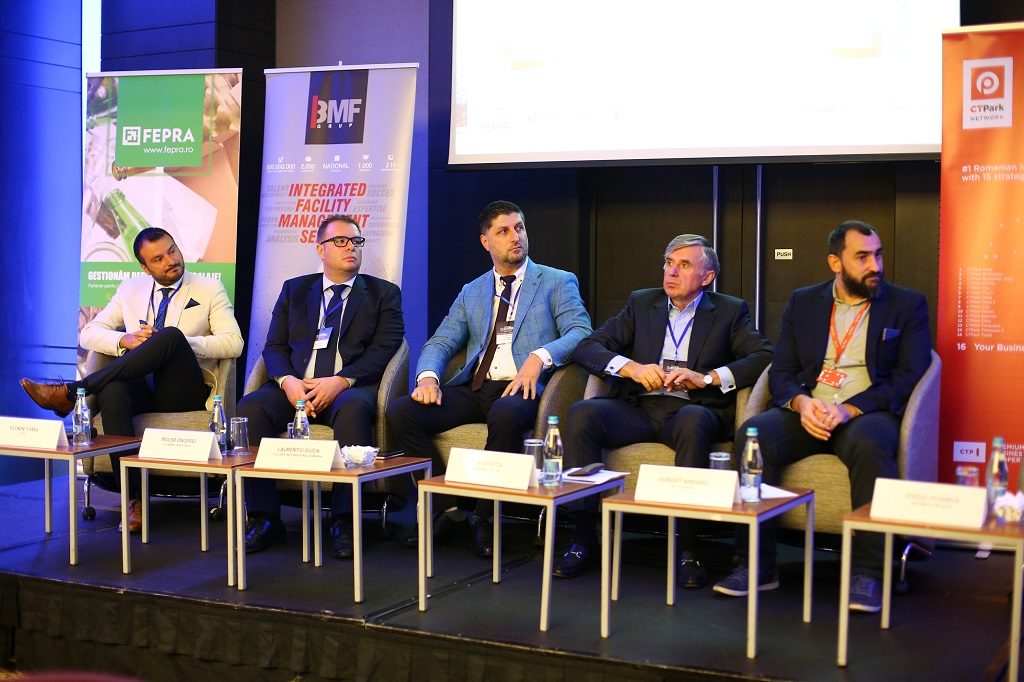
Ion Sturza – President | Fribourg Capital
- I have to say some unpleasant, but useful things – you need a good stomach and a lot of money to get involved in digital
- The online retail market- it’s less than EUR 500 million (others have quoted a figure of EUR 3 billion)
- Even if there are 800-1,000 online shops launched online every month, only a few of them have any chance to grow and become market leaders because things are moving a lot slower than we imagine and the costs are very high
- Most of today’s market leaders by revenue are strangled by the economic model and I don’t know how many of them will survive another two years
- There just aren’t any more clients for the eCommerce industry – there are around 600,000-1,200,000 active shoppers, the rest are occasional – we’re fighting over these to get them to our websites
- The industry is facing many challenges, and the biggest is finding people who are willing to invest a lot of money to be able to get a good return from online businesses
- “Uberization”: It’s no longer important where a warehouse is located – today technology is changing the paradigm of physical things
- On one side there’s the client who wants to move merchandise from A to B and has an intermediary (like Uber who takes his order and places it to a driver) a warehouse can be in a totally different place than we imagined
Muler Onofrei – Managing Partner, Element Industrial
- We think in a similar way to a bank – we see that an investment that has certain characteristics – a building needs good accessibility in the city, and most don’t; most of the time they have non-standard technical features
- eCommerce brings new demands that cannot be seen as part of the building – you have to be imaginative to evaluate such a company
- I don’t yet understand the business model very well – I wouldn’t even invest in Amazon; it’s a fragile and difficult business model
- This model will disrupt markets, including our own
Laurentiu Duica – Director, Board Member, Industrial Division | Colliers International Romania
- To be an online retailer you need large spaces in order to be able to negotiate with suppliers; a very good location; there’s a battle over these 2 million clients – the number is growing but it’s still limited, especially since members of the millennial generation tend to leave the country
- Romania’s fast internet helps the industry; if you’re skeptical of paying online you can still pay cash for many purchases
- This year saw the biggest eCommerce transaction
- Even with our terrible traffic, Romanians expect to get their order the next day – so you need logistics centers as close as possible to the couriers so they can process them quickly and deliver them
- Bucharest and its surrounding area is the best place for retailers who want to lease out their logistics spaces and not build their own
- Unfortunately, spaces have been leased in Cluj or Timisoara but were later closed because retailers work best from a single place – you risk taking merchandise to Cluj and end up selling it in Constanta – but there are solutions if the strategy is well thought-out – for example, many Ikea products are delivered from Baia Mare – including to other nearby countries
- Cluj-Napoca may become a large eCommerce center
Florin Toma – e-Commerce Manager | DHL
- 300-400 active clients who send packages outside Romania
- There’s a small number of online customers in Romania for the number of shops that have opened
- Why aren’t we looking towards customers abroad?
- You have all available tools to be able to take your products outside the country
- We pick up today at 5 pm and it reaches its destination by end-of-day tomorrow, in any country in Europe
Robert Anghel – Director, Head of Daily Banking | ING Romania
- In two years, the number of HomeBank users has more than doubled – over 700,000 clients log in at least once – 14 times on average per month
- More than half of clients are millennials who have an accelerated digital behaviour and don’t want to pay in cash anymore – many of them pay using their mobile phones
- Romania’s appetite for digital payments is growing rapidly
Panel discussion | Talking retail: Combining online and physical ecosystems for a truly integrated customer experience
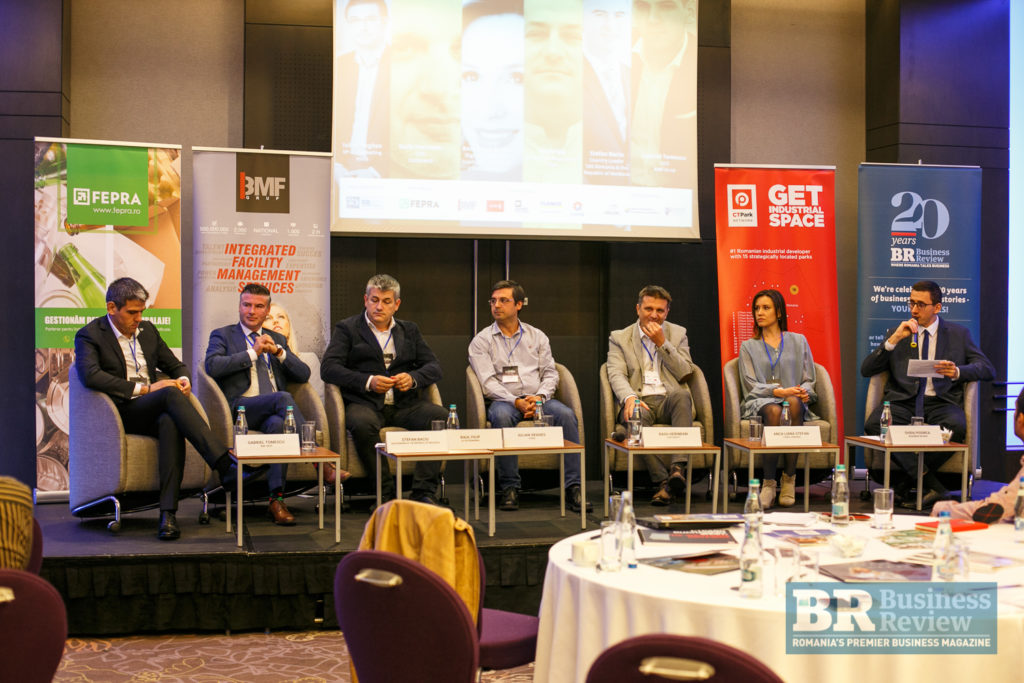
Gabriel Tomescu – CEO | BMF Grup
- We see things a little differently – I don’t think traditional offline retail will lose out to online retail as long as our partners continue to invest in both directions and create a link between the two
- Today, we see that the customer wants to have an experience – to try out, test out – you can also have this through deliveries, as they can return items if they don’t like them
- But they don’t just like trying stuff out, but having new types of experiences like being out in nature, trying out a new lifestyle, having a social experience – we’ve seen retailers who have created social media corners and people enjoy this type of thing, it’s a new trend
Raul Filip – Director of Acquisitions | Altex
- Besides selling online, we also create a link between the contact points between the company and the customer
- Retail success is mainly based on the customer’s experience
- More than 80 percent of clients make a decision on the spot in the store, even if they’ve looked online for two months before – help from our store assistants is what really helps them decide
- Logistics-wise, it’s a continuous challenge and that’s how it’s supposed to be considering the growth in the number of clients and the sale volumes – you always have to optimize a process or increase your warehouse space
- I heard the word omnichannel quite late today – people expect to be able to do anything anywhere – discover a new online shop, order, try out, return
- I’ve seen customers order products in-store, get them at home and return them back at the store
- Nobody is just online or just offline
- Carturesti started out offline as a high street store, not a mall-style store – but Romanians have a huge appetite for shopping malls so we adapted
- It’s much harder to implement a new feature on a cloud-based platform compared to an in-house one
- Logistically, what matters for us is speed and, increasingly, automation – which brings more precision and more speed
- Actually, most customers don’t want to be understood – a panic has been generated in terms of data processing – it’s hard to do a good segmentation in these conditions
- Once you start targeting, in this GDPR year, it’s still impossible to collect enough data – some of the data retailers have shouldn’t actually be there
- Knowing the customer is the most important in the online-offline mix – we’ve feared the cannibalization of consumers from offline to online – to our surprise, this didn’t happen
- Top sellers tend to be similar online/offline, but there’s also a totally different online consumer that doesn’t go offline at all
- It’s easier to recruit customers offline as women, our main customers, tend to prefer testing out the products
- We prefer converting loyal customers than recruiting new online customers
- Thers a higher IPT (items per transaction) online and thus a bigger value to orders
- L’Oreal works with big retailers and we have plenty of collaborations with both online and offline retailers
- Offline isn’t dead – the near future at least will be a mix of online and offline as we still see big market players opening up new concept stores as they also carry out an online expansion
Stefan Baciu – Country Leader | SAS Romania & the Republic of Moldova
- Our algorithm allows a segmentation of customer needs and offers a vision of the future – we do predictive analytics – we can estimate, based on previous transactions, what they will buy in the following two months
- There are several perspectives over the customer’s actions and together they are very important for any retailer – they need an omnichannel approach – whether they go into the store or on the website, they must have the same positive experience and feel that they are understood – companies have a great deal of data available from which they can truly understand their customers’ preferences, their needs and their expectations – if I buy a fridge, I no longer need suggestions for fridges – some online stores still do this and suggest types of products you’ve already purchased
Fireside Chat: Marketplaces
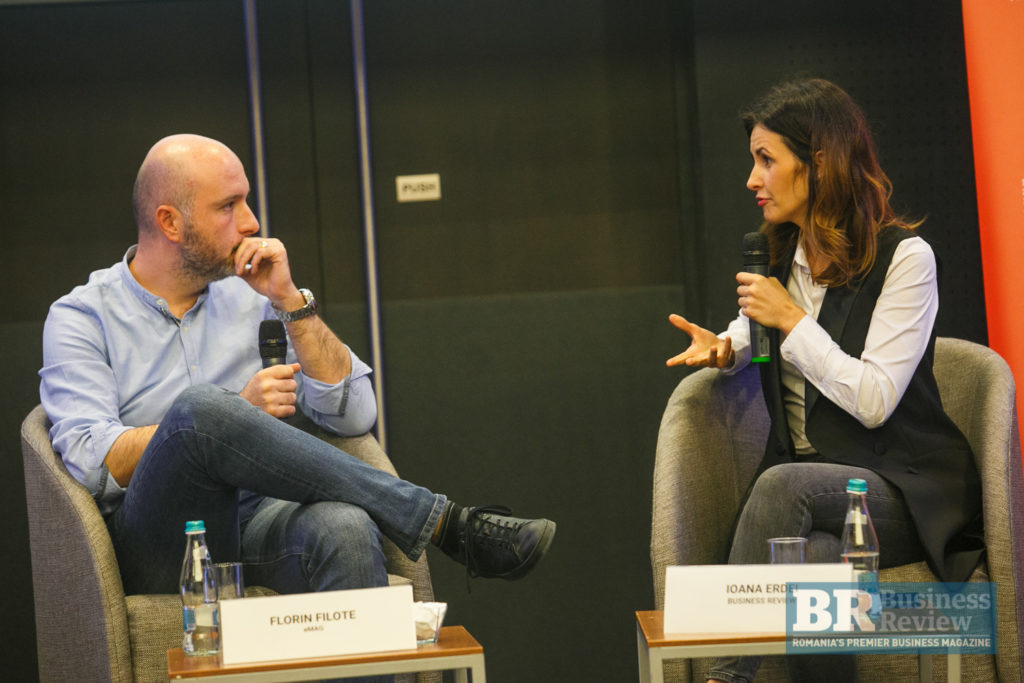
Ioana Erdei (moderator) & Florin Filote, Marketplace Director @ eMAG
IE: Let’s start with the benefits of a marketplace as we’re seeing it develop across the world – what are the benefits and the challenges?
FF:
- Marketplaces started out in 2005 with Amazon’s marketplace and have developed very quickly over the past years
- Benefits: first of all, from seeing a product to buying it there’s a momnent specialists call the zero moment of truth – as customers get informed online – they watch videos about the product, read reviews, compare prices – and then they decided whether they’ll buy it and where to buy it from – either online or offline. the benefit of an online marketplace is that it addresses the need for information – we’re seeing a migration from a shopping destination to an knowledge destination
- Benefits for sellers – marketplaces are the mall of the future – they are open non-stop and they don’t have limited shelving space like offline stores
- Generally, the marketplace model doesn’t generate extra risks for sellers – most marketplaces apply seller fees on products that are already sold – fee range between 7 and 20 percent depending on the category
IF: How does the competition from marketplaces like Facebook’s affect you?
FF:
- We’re glad to see competition because it tells us that we’re in the right place – this is the business model of the future – an infinite amount of products and partners; products respond to the need for knowledge of customers
- As pioneers of Romania’s eCommerce we launched the first marketplace – we’re close to 13,000 sellers and 3.5 million products – a huge difference compared to a relevant model in developed markets like the US or Germany
- As long as customers get better prices, products, services, we’re glad competition exists
IF: You have two types of clients – B2B – those who sell on your platform – and final customers – who buy the products – which ones are more important for you?
- Things are separate here for eMAG – the final client is the reason we exist – all of their experience is managed by the same team that manages our own store’s final customers – we provide support for customers who have issues with certain sellers
- We provide customers for sellers as well as an important market
- We’ve started to work to support intensive growth and help sellers develop with us in the online world
IF: Many Romanians have started to pay EUR 5,000 for a spot on Amazon’s marketplace, buy products from China and sell them on Amazon – why don’t they do this more on Romanian marketplaces?
- They do, and there are more and more new sellers on our market who have access to all the services eMAG offers and soon we’ll launch a new service that will allow them to access some extra marketing areas with a strategy of their own in order to put their products in front of the customer while the customer is still able to continue browsing as normal – it’s a cost-per-click model similar to FB ads
IF: There are many online workshops about how to sell and make money on Amazon – from your perspective, is it beneficial to have such a business on Amazon?
- From an entrepreneurial perspective, we also support such endeavors – but you can’t get rich by investing EUR 5,000 on Amazon – we don’t think that’s possible
- There are some sellers who do become successful on Amazon, but you need much more than EUR 5,000 – it’s not for everyone
IF: What’s a healthy model for selling products on a marketplace? What’s the minimum investment and the least risky behaviour an entrepreneur should have, how long do they have to wait to see results?
- We can’t talk about entrepreneurship without taking risk into account – they need to risk everything in order to have a chance of being successful
- Everything starts with expertise – if you open an online venture and expand your product expertise you’ll want to start looking at the marketplace model
- Almost 1,000 of our marketplace sellers of the 13,000 sell more than RON 100,000 per year – when you start understanding all the features eMAG makes available for you to sell more products you’ll be able to optimize your sales
- You need to constantly work on your marketplace store to understand what customers need, the product’s story, the importance of photos and how well they describe the products, finding out whether your pricing strategy is appropriate.
- We have a three-month program to train sellers and get them to
IF: What’s the drop-out rate for sellers on your marketplace?
- 2-3 sellers drop out of the marketplace per month, while 800/month join the marketplace.
- More importantly, in the last six months, we’ve been conducting a rigorous process to address the sellers’ operational quality – if a seller doesn’t follow quality standards, they get suspended as we want to improve the final buyers’ experience as much as possible – 6-8 sellers are suspended every month for this reason
IF: In the case of serious sellers who have already optimized their process on the marketplace, they tend to look towards scaling – they want to start selling outside the country, what are their options?
- eMAG already helps sellers do this – we’ve started to invite sellers to cross-border sales
- We’re working on a similar model to Fulfillment by Amazon – we’re simply calling it Fulfillment by eMAG – and offer our sellers the opportunity to take their products outside Romania’s borders
- The most successful of our sellers have 4+ sale channels
IF: What are three recommendations for a seller who’s starting out?
- First of all, pay attention to customers
- Constantly develop your offer
- Be aware of the rules and standards on the marketplace on which you’re operating
Q&A session | The retail and carrier ecosystem: providing an aligned and consistent delivery service
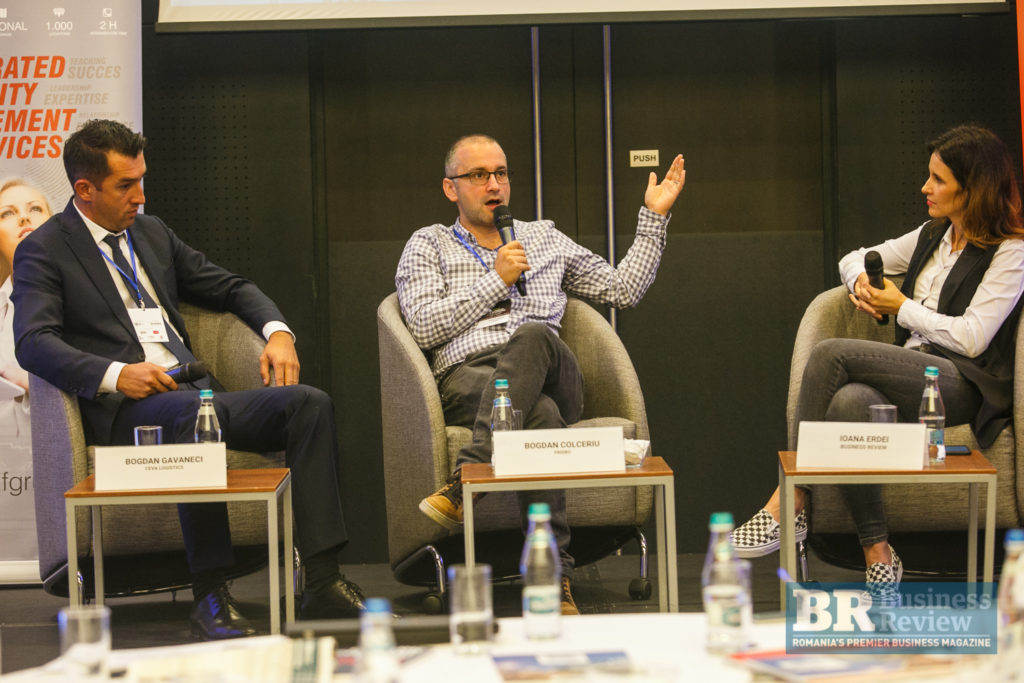
- Our logistics market is interesting – we have a good geographical position, we have know-how
- We’re prepared to deliver the quality needed for any investment
- We have the role of consultant – you always try to give your best feedback to clients but many of them think they know everything, and this is the case with many online retailers who choose to only have in-house services and don’t invest in technology or logistics – that’s our role, they should just focus on their core business
- We’re not always understood and this can end up hurting the final buyer – it’s an artificial ecosystem when you have all in-house services – you can lose money and efficiency
- You need transparency with clients – they want you to do everything and give them the best price – you need logic, ethics and passion – if you’re arrogant and say you’re the client and that’s it, you may develop a bad reputation and even logistics partners will change their approach with you
- We see developers as partners – they inform us of available spaces, we evaluate the info and make a decision – you need to be aware of the services and developments in the market
- In the following 5 years, the logistics market will continue growing, competition is strong, there are many new projects and the market will continue developing
- We’re much more cautious now, after the things that happened in the past, such as during the financial crisis – we are more conservative, we want stable clients and I think most companies have this type of approach now
Bogdan Colceriu – Founder | Frisbo
- We’ve focused a lot on e-fulfillment – logistics for eCommerce – these services are starting to be understood in Romania, while they’ve been a regular thing abroad
- In this market, the model we’ve tried out is unique – we’ve created a product based on integration – bringing an order from an online store or retailer to the warehouse for someone to pick it up and deliver it on the same day – this involves a lot of small processes – Frisbo takes care of the integration and automates these processes, which allows very quick scaling
- Integration is key for fulfillment – in online retail, you can’t have manual processing in a warehouse
- My dream – and it’s not impossible – is that a seller goes online, logs in on any marketplace platform and starting tomorrow, they have the option of choosing any warehouse they want for their products – the system is able to handle the information
- We have universal pricing – take it or leave it
- Space is no longer a problem for us since we’ve adopted the Uber model with partner warehouses – we just need to ensure enough volume for clients
- The logistics market itself is very well-developed, but the e-fulfillment sector is still at the beginning – I think it may end up looking very differently compared to other parts of the world
- I think in the following years it will be integrated – wherever you sell, you’ll be able to split your merchandise exactly how you wish and optimize your retail strategy based on this approach – you can’t have this today – there’s no fulfiller in the world right now that can offer this to you
Q&A session: Sustainability
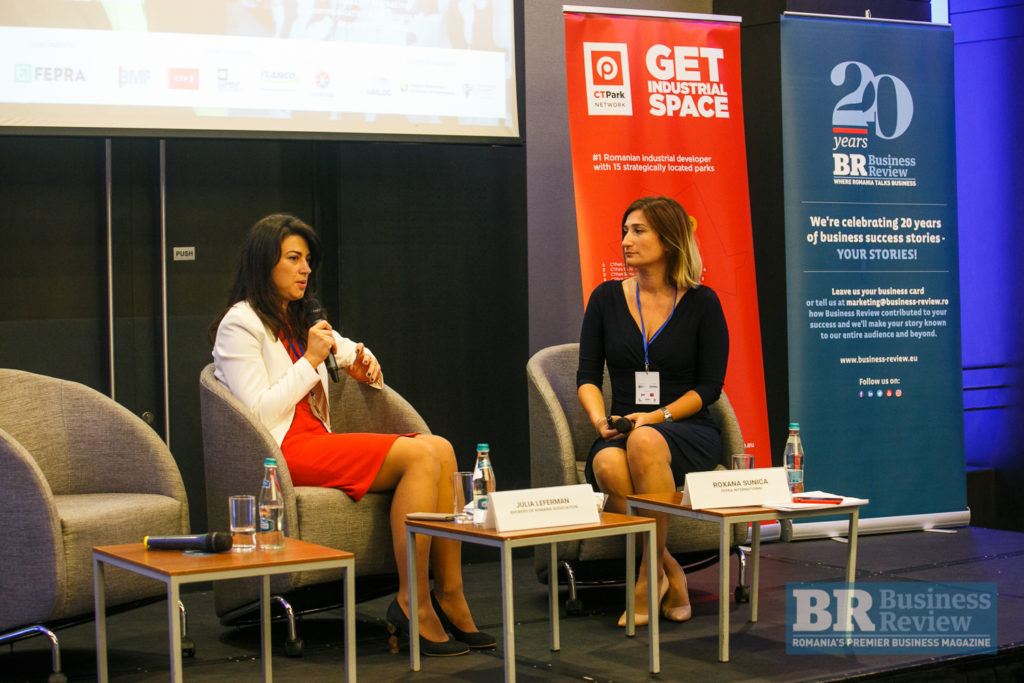
Roxana Sunica (Manager Marketing, Communication & Corporate Affairs | Fepra International) & Julia Leferman (General Director | Brewers of Romania Association)
RS:
- Emergency Ordinance 74/2018 – passed just a couple of months ago
- Increasing recycling/recovery targets from January 2019 – mandatory for us as an EU member state and waste producers
- The OUG changes two laws (11 and 249)
- In short, the biggest change: until 2019, producers could transfer their responsibility to recycle and recover to companies like FEPRA, which now takes over responsibility from waste generators (RTOs – responsibility transfer organisation), but from now on producers will be liable for the waste they don’t manage, regardless of whether other companies they collaborate with fail to fulfill their obligations to recycle/recover
- We don’t think the legislation will actually be applied starting in January, it will probably take a couple of years
- RTOs are trying to make legislators aware that some points need to be clarified
- In Romania there are 1,8 million tonnes of packaging waste placed on the market – starting next year we’ll need over 65 percent selective collection levels – this works quite well already between retailers and collectors, but the biggest issue is collection from the general population – we don’t have infrastructure for packaging waste collection so authorities have imposed a deposit system
- The law states that stores over 400 sqm, starting in March 2019, need to provide a system for customers as to be able to offer a RON 0.5 guarantee scheme to encourage customers to return reusable packaging – but there are several questions lawmakers need to clarify as it’s being debated in the Parliament
JL:
- The OUG establishes some very clear obligations for waste producers/generators – we don’t always agree with legislation in this sense – responsibility has been shared between producers and local authorities – transferring liability completely to producers without any mandatory requirement for local authorities to implement separate collection facilities for citizens
- In EU countries that have storage facilities there are generally selective collection levels of over 70-80 percent
- About 20 percent of packaging in the beer industry is reusable glass – producers are interested in either recovering their bottle or using the guarantee scheme to acquire new packaging
- The rate of recovery for this type of packaging is quite big at the moment
- Producers in the beverages industry will essentially be required to provide both reusable and non-reusable packaging for retailers – but it’s unclear whether this will apply if the producer doesn’t even have both options in their portfolio for certain types of drinks – imposing this rule on an importer who doesn’t have reusable packaging for one of their products poses an efficiency problem
- We have trouble understanding the new legislation and it may impact a large part of the retail sector and other sectors – we don’t understand how this regulation was developed
Q&A session | Streamlining Transactions in the Digital Age
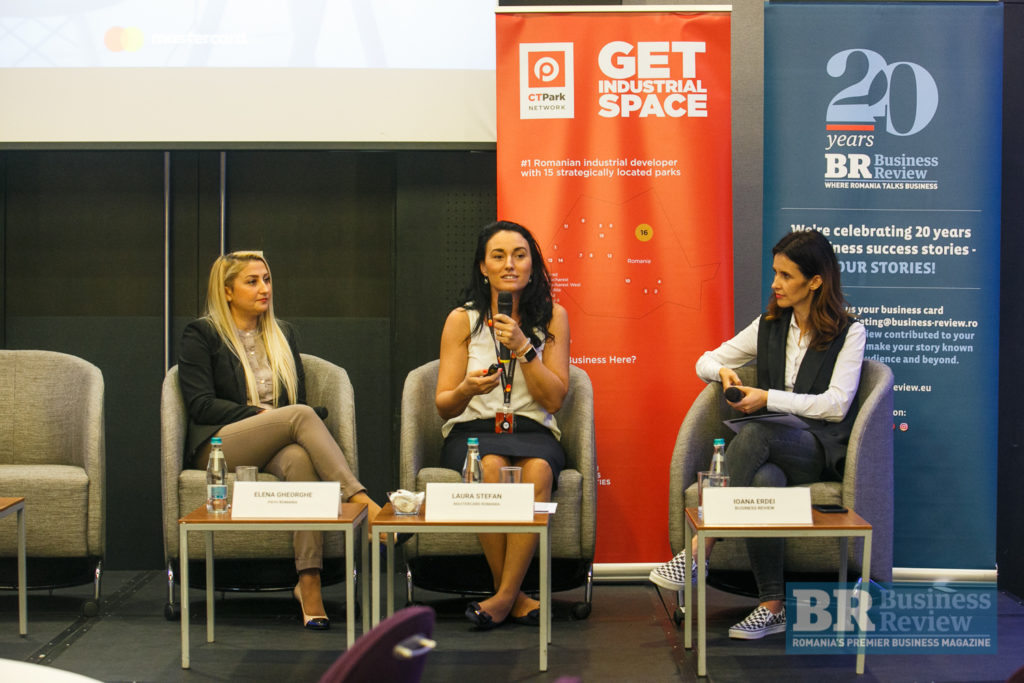
How leading players are using the latest technologies to increase the speed of transactions, drive business in new global retail hotspots and deliver significant ROI.
Elena Gheorghe – Business Development Manager | PayU Romania
- Our clients include eMAG, PC Garage, Fashion Days, etc.
- Romania’s eCommerce market has a value of EUR 3.5 bilion (+25 percent since 2017); 16 percent online payment market out of total payments (+40 percent vs 2017) – the fastest growth in Europe
- Efforts by biggest players to grow this segment and get closer to the final consumer
- We provide pay-by-click services to clients (card on file) – a payment method that helps a very fast conversion and helps client finalize payment quickly – leads to at least 10 percent growth in conversions
- Last year’s Black Friday –70 percent of shoppers paid with one click (in the first part of the day).
- Another important part of online payments are installments – 16 banks involved in such a scheme
- Installments can increase business by at least 15 percent – can go up to 40 percent during Black Friday
- Retailers have a large focus on mobile purchases and pay by click helps the process
- Mastercard’s vision: a cashless world
- Mastercard doesn’t issue cards – we’re not a bank, we don’t print the cards – we’re a global technology company working daily to develop the payments sector
- We’re very well positioned to understand all payment streams
- We support the development of Romanian businesses through technology and innovation – understanding the needs of SMEs and Romanian entrepreneurs, who need a complete solution for their business and support from the right professionals
- Romania is a market that shows there is a lot of progress to be made: cash is still the favourite payment method for SMEs (67 percent); when company size grows, cash becomes more difficult to handle
- Both sides of a company’s finances should be covered through a bundled approach of cards and acceptance – SME 360 service
- Installments are a desirable feature for SMEs, necessary if the spending is driven to bigger tickets.
- SMEs using mobile phones for their business need a Digital App particularly built for them and their duality as entrepreneurs and consumers. Spend Alerts and Controls – the core element for peace of mind and increased spending.
Keynote speech | Last Meter Delivery: better addresses for a better customer experience – Pierre Francois, Senior Partnerships Manager | what3words
- Existing addressing systems in Romania and everywhere in the world are not made for modern logistics – this has an impact on operations and customers
- When customers don’t get their products on time, they leave angry reviews on social media – this kills your business – when you mess up the first delivery you lose the customer
- Large sites are hard to navigate – a pin in the middle of a building doesn’t help find the right entrance or entry point
- In rural areas, it becomes a real nightmare because you need to rely only on the knowledge of the local postman or neighbours
- Inaccurate shipping addresses have important consequences: increased costs, loss of sales, impact on reputation
- One solution can be GPS coordinates, but they are not human friendly and nobody will use them
- So what’s the solution? This is where what3words comes in – divided the world into 3×3 m squares and they are described by three words – our tech can convert these 3 words into standard GPS coordinates – we’ve done it in 26 languages – not translation, but equivalent words – soon we’ll introduce Romanian, Bulgarian, Chinese
- 3-word addresses lead to 30 percent faster deliveries because you know exactly where to go
- Zero phone calls to customers – better user experience
- A few lines of code can build what3words into any platform
Panel Discussion| Innovation and Technology Management in Logistics
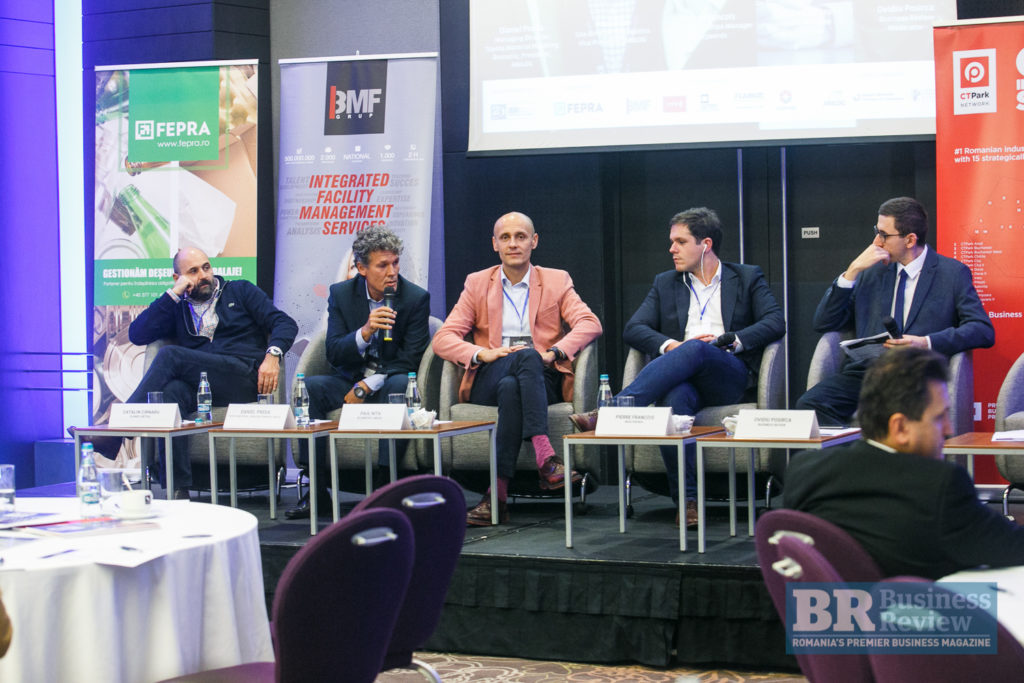
Daniel Preda – Managing Director | Toyota Material Handling Romania, Presedinte | ARILOG
- We call most of our machinery “smart trucks” because of the software they use – whether we like it or not, we have to compensate for the lack of infrastructure with technology
- Pressure on costs is another factor that pushes you to use technology to evolve
- In terms of services, it’s obvious we need technology to increase the efficiency of service technicians
Paul Nita – Site Director | ID Logistics, Vice President | ARILOG
- We’re one of the few countries that has a city known as “hackerville” – innovation has to be a day-to-day thing
- Technology helps us to no longer make mistakes – customers don’t care that someone made a mistake and messed up their order – if you can’t automate fully, at least implement a double/triple checking system
Pierre Francois – Senior Partnerships Manager | what3words
- I spent time in different countries and the Romanian logistics market is much more interesting – I can feel that you’re trying to leap forward and not make the same mistakes as other countries and it’s really encouraging for the future
- If you think you’re going to replace humans with technology, we’re not ready for that – it will take dozens of years because there are a lot of changes we need to make for this to happen – but technology today can help people and make their jobs less painful and decrease the risk for mistakes
Catalin Cirnaru – Logistic Manager | Flanco Retail
- I agree that we need to innovate daily – if we all wake up every day with the client in mind, we’ll be forced to innovate
- There’s good pressure from millennials, who force us to innovate otherwise we’re out of their search results
- The first time you look at the delivery segment, you look at the direct cost – but there’s also an indirect cost in returns
- With better delivery services, the amount of returns decreases
- A study by the UN showed that 30 percent of food is wasted around the world – here, IoT technology could help tremendously
Panel Discussion | Demand for warehouse space among retail chains and logistic operators
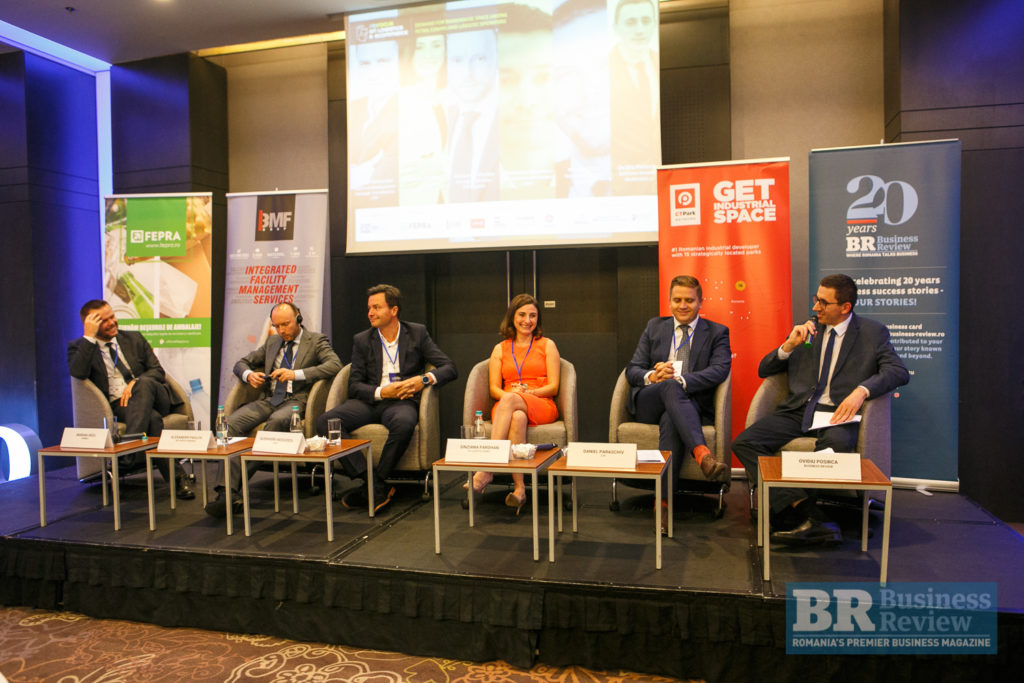
Daniel Paraschiv – Business development Manager Transilvania | CTP
- In Cluj, where cost of living is not as high as in Bucharest, the cost of construction is paradoxically higher and thus rent will have to be higher as well
- In order to have lower costs considering high rents you either have to decrease the quality of the building or take it further away from the city where the land is cheaper
- There are challenges regarding the storage of products – some products need specific standards for storage and you need extra investments
- We’ve started bringing in medical points, supermarkets, leisure activities in order to make the industrial area more attractive for employees as tenants are complaining about the lack of available workforce
- In the past few years, the development of logistics space stock has been huge – both demand and supply have grown significantly, compensating for the losses during the crisis
- Costs are a factor that troubles us as developers but the market is eventually the one putting pressure on rents
- Rents have been growing, but now they’ve stabilised and we hope they maintain the current levels considering there’s no more speculative growth
- We see growing demand from tenants
- For us it’s very important for logistic spaces to be flexible, even though changing real estate is quite difficult once you’ve built it – it needs to be able to adapt to various uses and we implement certain standards such as storage spaces and capabilities; enough height for various operations; parking spaces, social spaces, offices
- As the workforce crisis has been a growing theme of the past few years, we do our best to make our spaces attractive for potential employees
- Automation is strictly related to critical mass – if you have enough volume for automation to make sense, you should invest in it – while eMAG has reached this level, many others have not done so yet
- Doubling the size of a business in three years is a normal target but I’m not sure it can happen for every company
- The sqm efficiency is growing; it doesn’t mean that the increase in sqm will be linear but I will be glad if 5 million sqm will be reached
- Automation: for some robots we don’t even consider the ROI, but if you don’t invest now you’ll never get this experience of using it, integrating it into your business; we’ve already started to implement it even without a detailed long-term plan
- I’ve heard about importing workforce from abroad – but it’s easier for some companies to move their factories to China than bring the workforce here
- Our purpose is to respond to the needs of clients
- I would look at where the new warehouses are being built, how close they are to the biggest markets
- We’re big consumers of logistics spaces
- We’re the type of client that can make long-term commitments
- The type of warehouse we need has a high number of employees – we need good solutions for transporting employees; another way to optimize our space is looking at how products are stored – we build platforms – so we need to know the characteristics of the floorspace, whether it can handle our platforms
- 100 percent of our Bulgaria deliveries are sent from Bucharest, even with the long waiting times at the border
- What’s happened to stock in the past few years has been a response to market demand – industrial spaces market has had a major development lately
- Lately, the availability of space has grown – from zero to 1-4 percent in various areas of Bucharest and also in other parts of the country
- Now the market is at around 3 million sqm and I’m sure it will grow, but the number is not necessarily the most relevant indicator


:quality(80)/business-review.eu/wp-content/uploads/2018/10/NEAN8289.jpg)

:quality(80)/business-review.eu/wp-content/uploads/2024/07/SNIPPETS-REALTY-2024_elena-jianu.png)



:quality(80)/business-review.eu/wp-content/uploads/2024/06/22C0420_006.jpg)

:quality(80)/business-review.eu/wp-content/uploads/2024/06/COVER-1-4.jpg)



:quality(80)/business-review.eu/wp-content/uploads/2024/06/br-june-2.jpg)
:quality(50)/business-review.eu/wp-content/uploads/2024/07/Ilustratie-2.jpg)
:quality(50)/business-review.eu/wp-content/uploads/2024/07/VGP-Park-Timisoara_-8thbuilding_iulie-24.jpg)
:quality(50)/business-review.eu/wp-content/uploads/2024/07/America-House-Offices-Bucharest-Fortim-Trusted-Advisors.jpg)